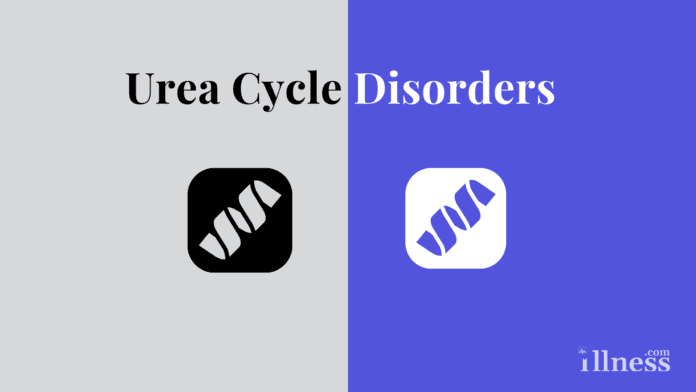Overview Of Abnormality Of The Urea Cycle – Hereditary
This particular version of urea cycle abnormality is an inherited condition, hence the “hereditary” moniker in its name. It mainly causes difficulties with the removal of wastes from the body in the form of urine.
Commonly Associated With
Hereditary Abnormality of the Urea Cycle
Causes Of Abnormality Of The Urea Cycle – Hereditary
Normally, the urea cycle is a process that removes wastes from the body, in particular a substance called ammonia. Leftover amino acids that the body produces in the process of breaking down proteins the person has eaten creates ammonia. The body must remove this waste product, as it is toxic to leave in place.
The body needs to transform ammonia into urea before it can remove it in the form of urine. Several enzymes created by the liver help accomplish this transformation. Ammonia levels in the body can rise if this transformation process (ammonia to urea) is interrupted.
In the case of an inherited abnormality of the urea cycle, several different inherited conditions can be the cause. Most of these causes are a defective version of the gene that normally makes the enzymes that transforms ammonia into urea. Without a functioning version of that gene, the process cannot occur as it typically does.
These diseases include:
- Carbamyl phosphate synthetase (CPS) deficiency
- Ornithine transcarbamylase (OTC) deficiency
- N-acetyl glutamate synthetase (NAGS) deficiency
- Arginase deficiency
- Argininosuccinic aciduria
- Citrullinemia
These disorders, as a group, occur in 1 out of every 30,000 newborns. The most common of these disorders is OTC deficiency.
Males are more often affected by OTC deficiency than females, who are rarely affected. Those females who are affected tend to have milder symptoms and can develop the disorder later on in their lifetime.
The other disorders listed need 2 copies of the dysfunctional gene, which means both parents must have the dysfunctional gene. A lot of the time parents are not aware they carry the abnormal gene until their child exhibits the disorder.
Symptoms Of Abnormality Of The Urea Cycle – Hereditary
Typically, the disorder presents somewhat slowly. The newborn will start out feeding well and appears normal and healthy. But, over time, they begin to develop vomiting, sleepiness, and poor feeding. The sleepiness may be so severe that the newborn is difficult to wake up. This process most often occurs within the first week of life.
Symptoms include:
- Increased sleepiness, difficulty waking up
- Decreased nutrition intake
- Confusion
- Nausea, vomiting
- Dislike of foods that contain protein
Exams & Tests
A health care provider will often diagnose these types of disorders when the infant is still very young.
Signs may include:
- Abnormal levels of orotic acid in blood and/or urine
- Abnormal amino acid levels in urine and/or blood
- High blood ammonia level
Tests can include:
- Genetic testing
- Blood ammonia tests
- MRI or CT scans
- Arterial blood gas tests
- Urine organic acids tests
- Plasma amino acids tests
- Blood glucose tests
- Liver biopsy
Treatment Of Abnormality Of The Urea Cycle – Hereditary
The most important treatment for this disorder involves prevention – namely, reducing protein intake as much as possible as guided by a health care provider. By limiting proteins in the diet, the patient can help to treat their disorder by reducing the amount of ammonia waste the body produces. Special low-protein infant and toddler formulas are available for parents to use. Limiting proteins must be done with balance, however, as it is important that the infant receives enough protein for growth, but not so much that they have symptoms of their disorder.
It is crucial for those with this disorder to avoid fasting at any point in their special diets.
Those with this disorder need to monitor their stress levels at all times, as physical stressors may exacerbate their symptoms. During times of physical stress, such as fevers or infections, their bodies can begin to break down its own proteins. This can cause the same problems as if the person were eating too many proteins, as the extra proteins will cause problems with the urea cycle of waste removal regardless of the source of the proteins.
When physically ill, the person needs to be sure to have a plan in place that they had developed with their health care provider ahead of time. They need to be sure to avoid all protein, get enough fluids, and consume drinks with high amounts of carbohydrates. Most of those with this disorder will need to be admitted to the hospital at some point, and during such stays, they may be treated with various medications to try and help remove the ammonia-laden wastes from their bodies. During extreme episodes of illness, they may need dialysis to remove excess ammonia. Very severe cases may require a liver transplant.



